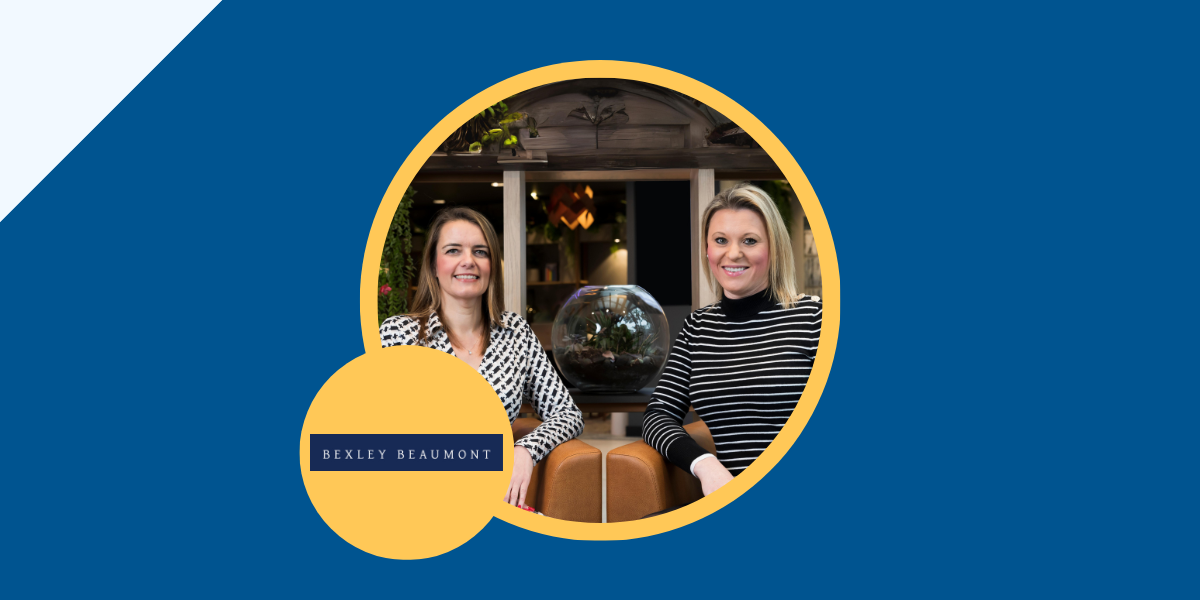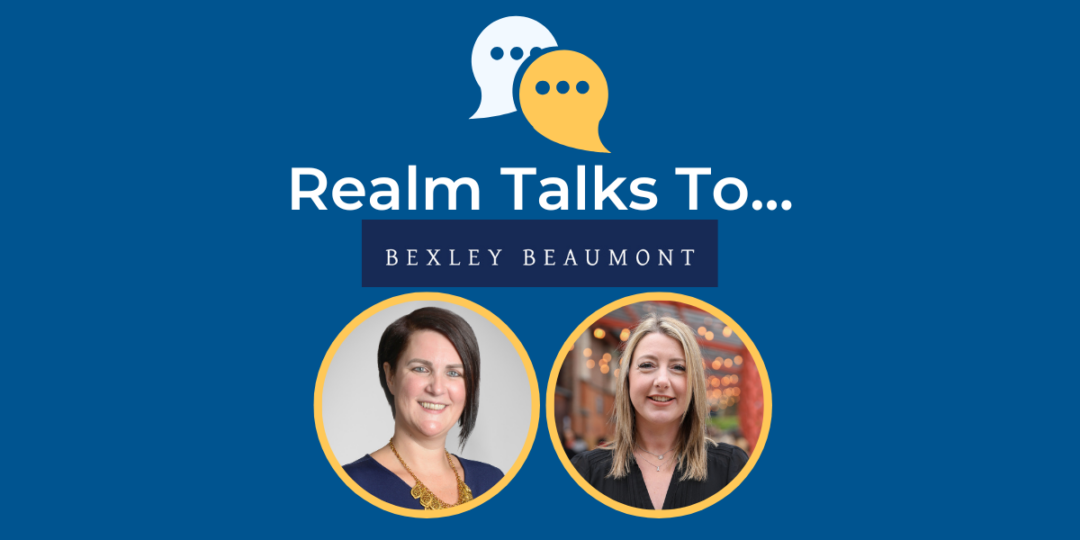Featuring an interview with Karen Bexley, CEO and Anna Beaumont, Director at Bexley Beaumont.
There has been a significant rise in the number of fee-share or consultancy firms within the legal sector in recent years. These pioneering practices, commonly known as fee-sharing firms, have been reshaping the traditional landscape of the legal industry. Based on current growth rates, it is predicted that up to one-third of lawyers could transition to working on a consultancy basis or at a fee-share firm within the next three years.
One such firm is Bexley Beaumont, an award-winning national boutique set up in 2020 to provide a different offering and a real choice for both clients and lawyers. The firm has been described as “the best of both” and a “hybrid” combining the elements of traditional law firms with those of a consultancy model.
We recently spoke with CEO Karen Bexley and Director Anna Beaumont to explore the future of the fee-share model and how Bexley Beaumont presents a refreshing alternative for lawyers considering this approach.
Why do you think the fee-share model has emerged as such a popular option for lawyers?
Karen Bexley: It’s become a credible and popular alternative for professionals looking to take back control of their career, set their own goals and targets each year and be fairly rewarded for the work that they do. One reason why it is more widely accepted is because more is known about it and now firms such as Bexley Beaumont offer a different approach within the broad fee-share model. Just as traditional law firms are not all the same, no two fee-share firms are exactly alike. At Bexley Beaumont, the lawyers can choose where and when they work, and they choose which clients they act for within a culture of teamwork, support, and collaboration. Our uncompromising approach to quality and focus on team culture means lawyers work with like-minded professionals and they have the infrastructure to help further build their teams and practice.
Do you think there are any misconceptions about fee-share law firms?
Anna Beaumont: Yes. The principal one is that they are all the same. Some are more virtual/dispersed types of firms, some call themselves a ‘platform’ firm, they can differ in the support they provide lawyers and their approach to growth, strategy and recruitment. Bexley Beaumont is a boutique law firm with a focus on talent, support, team culture and collaboration. All firms have their own distinct cultures and specialisms. Some focus more on private client work, for instance, and less on the corporate or commercial practice areas. It’s important for lawyers who are weighing up whether consultancy work appeals to them to consider which style or approach best suits the way that they work, their practice area, their clients and the type of culture they wish to be a part of.
Bexley Beaumont is known as a “hybrid” firm and “the best of both”. How does it differ from other fee-share firms?
Karen Bexley: Bexley Beaumont lawyers enjoy all the benefits of any fee-share model and are remunerated on a fee-share basis however the ethos of the firm is very much a hybrid; a “best of both” – giving partners control and autonomy while also providing the support, culture and sense of shared purpose and values that more usually characterises a traditional firm. When we launched, our intention was to combine the best elements of traditional law firms with the best elements of fee-share firms. For example, we recruit lawyers more in the style of a traditional law firm, our approach to recruitment and growth, the support and our infrastructure and the way we approach marketing and business development are all more aligned with traditional law firms. We on-board like-minded professionals who want to work with other professionals who share a similar experience and mindset, and we find this builds trust and confidence internally in the specialist teams. Legal 500 recently commented on our “progressive team culture” and “innovative model”. It is always more powerful to hear objective, external commentators say something positive about your business! It reinforces our own belief that we are offering something different.
With your lawyers often working at home (or elsewhere), how do you bring lawyers from across the firm together and maintain what you have said that Legal 500 describes as the “progressive Bexley Beaumont culture”?
Anna Beaumont: When we launched, we came up with a motto of “Grow the Team, Keep the Culture”. That saying is as relevant and vital now as it was then. It is not just about large firm-wide events but the way in which we work on our team culture every day. We bring everyone together in a number of ways and the number of events which we have held so far this year, including socials, practice area get-togethers, guest speaker sessions, coaching sessions, development sessions, charitable initiatives and fundraising and many more is something that we’re proud of as it really does improve understanding and connection, and promotes joint working and collaboration. Exposure to our team culture starts on the first day that people join us with a ‘buddy’ system for all new joiners and existing team members meeting new joiners on their first day.
Our CEO, Karen, is responsible for a monthly update, so everyone knows how the firm is progressing, what our plans are and how we are performing against our objectives.
We regularly invite feedback because we believe in a culture of continuous improvement, and we want to ensure that we are doing the right things in the right way and for the right reasons. A key element in furthering that culture is recruiting people who will be a good fit. At Bexley Beaumont, we know that our lawyers value and respect a team culture.
They want to be part of a team and feel connected to their colleagues. We and they are in agreement that there isn’t a place for any ‘silo mentality’ at Bexley Beaumont.
How does the fee-share model work at Bexley Beaumont work for junior lawyers, compared to partners and consultants?
Karen Bexley: We believe that control can be as important to junior lawyers looking to establish their careers and develop their practice as their more senior colleagues. Some junior lawyers are employed directly by partners, whereas some are employed by the firm centrally and others also work on a fee-share basis. We look at each person coming on board to see what will suit them and Bexley Beaumont. It is a case of marrying the individual to the circumstances and our culture to arrive at a tailored way of working which is to everyone’s benefit. They all participate in team events, socials, initiatives, and development programmes.
How do you think the fee-share model will evolve in the next few years?
Karen Bexley: I think it’s entirely possible that we may well see some amalgamation in the sector. Smaller fee-share firms may look to join larger and more established firms to benefit from their infrastructure and support systems. It will also be interesting to observe how succession planning may work in some of the larger more established firms. We intentionally launched Bexley Beaumont to challenge not only some of the traditional law firm ways of working but also some of the ways of working in some of the more established fee-share firms. I am sure that other firms will come along and challenge us and others too which will further promote innovation and should create more choice for both clients and lawyers.






